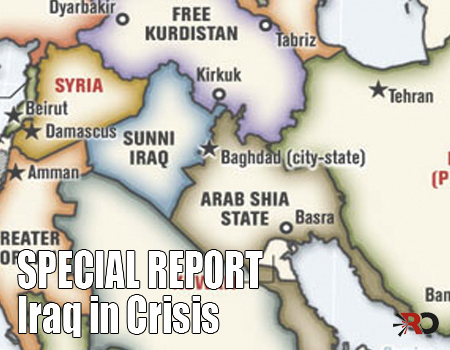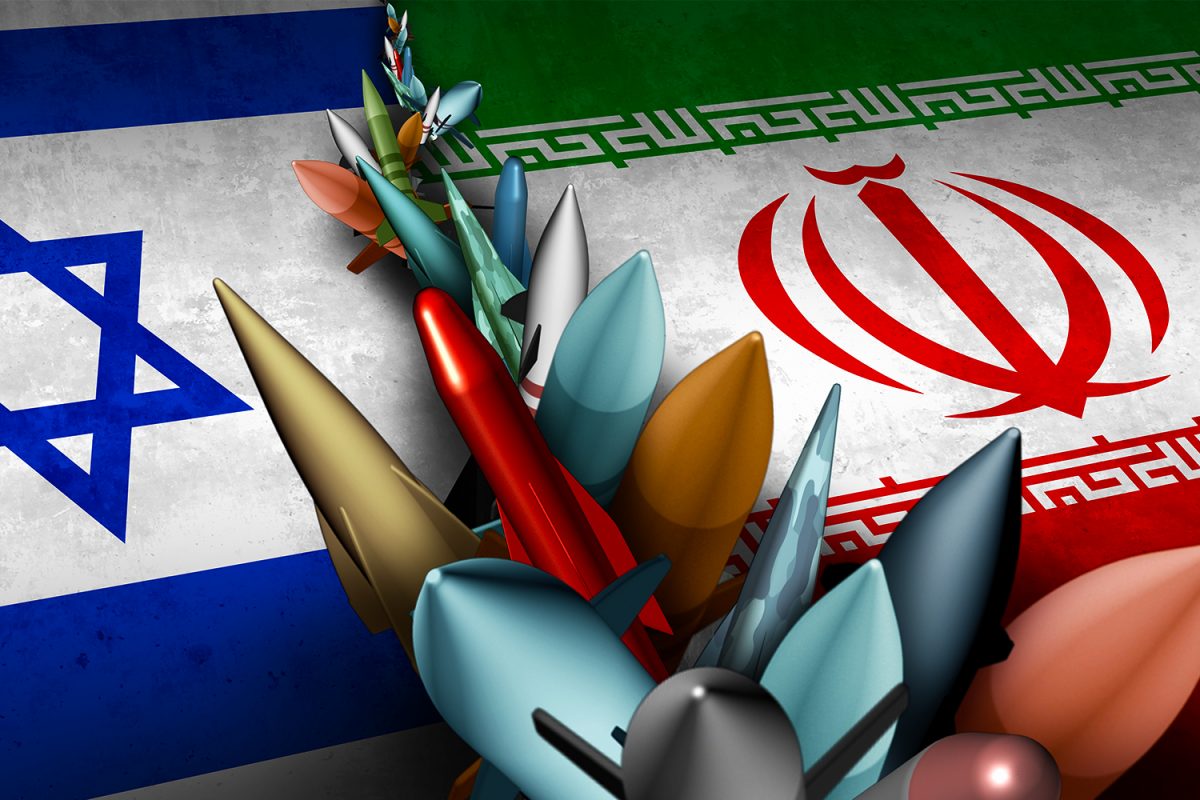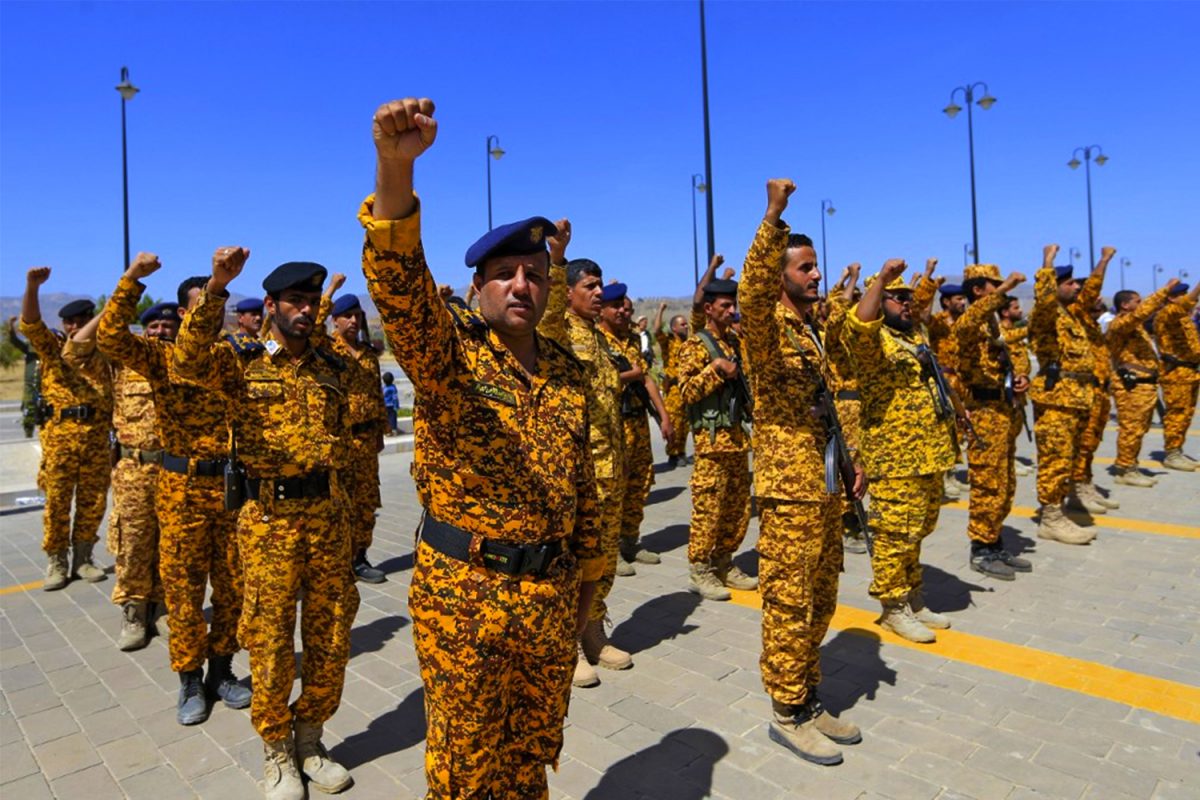In this second part of RO’s special report, looking at the crisis in Iraq, the winners and losers from the current uprising are analysed
Despite their limited role in the current uprising in Iraq, ISIS has benefitted from the events substantially. The exposure it has been given by the international media has aided it’s international recruitment effort. It is undeniable that there are Muslims who believe fighting against the Western supported regimes established in the Muslims world by the colonial powers (primarily America and Britain) is the correct path towards revival of the Islamic Nation (Ummah). The success of ISIS in Iraq increases the appeal of this organization to these Muslims. In addition, it has been reported that ISIS has been able to capture substantial amounts of highly sophisticated weapons during the raid on Mosul – American Army supplied Humvee’s and Jeeps, tanks, anti-tank rockets and even helicopters. [1] ISIS is also said to have raided the Central Bank offices in Mosul, taking off with almost $500 million worth of Iraqi dinars. [2] Therefore, the uprising in Anbar has been a great success for ISIS from both a propaganda and military perspective.
However, ISIS is not the only party benefitting from the current state of affairs in Iraq.
In his interview with Al Arabiyya, Anbar tribal leader Sheikh Ali Hatem al Suleiman stated that if the demands of the tribes were not met by the Iraqi government in Bagdad, Iraq would have to be broken up into a Kurdish north, Sunni center and Shi’a south. [3] The leaders of the Iraqi Kurds – who made use of the unrest in Anbar by expelling the Iraqi government representatives from Kirkuk, the emotional capital of Iraqi Kurdistan and home of the fourth largest oil field in Iraq [4] – have come out with even stronger words of support for a break up of Iraq. Kurdish Prime Minister Nechirvan Barzani, nephew of the Kurdistan President Massoud Barzani, said that after the events in Mosul Iraq could no longer stay together. He suggested the creation of an autonomous Sunni Arab region, similar to the existing autonomous Kurdish region, as a way out of the crisis. [5]
The call for a break-up of Iraq was first uttered by Joe Biden, president Obama’s vice president, in a New York Times opinion piece from March 2006 named “Unity through Autonomy in Iraq”. [6] Vice-president Biden is said to remain in favor of what has been called the “Bosnia-option” for Iraq until today [7], and there is ample evidence that this in fact is the longer term American plan for the country.
For example, while America now criticizes the Iraqi Prime Minister Nouri Al-Maliki for having caused the unrest in the country through sectarian policies, it was the US who put him in power. Shortly after the United Iraqi Alliance party won the general elections of 2006 its leader Ibrahim al Jaafari was forced from power. The Americans, through their ambassador to Iraq Zalmay Khalilzad and the CIA, then played an active role in the selection of a new leader for the party. This lead to Nouri Al Maliki being appointed as the new leader of the United Iraqi Alliance party, which automatically made him the first Prime Minister of post-war Iraq. [8] During the 2010 elections America actually renewed their support for Al Maliki. Although losing the popular vote to Iyad Allawi he nevertheless stayed on as Prime Minister, a feat that could not have happened without the support of America. [9] All along America was aware that Al Maliki’s was oppressing the Sunnis and that this was causing resentment in Anbar. [10] Nevertheless, it continued to work with him on the important matters, only gently rebuking him for his sectarianism during the run up to the 2014 elections. [11]
When the inevitable unrest finally began in Anbar, Al Maliki approached the Americans for military support to suppress it. But the Americans refused. This was effectively the first time America took their hands off of Al Maliki and it was at a critical moment. Decisive action at the beginning of the rebellion could have prevented it from spreading, ensuring the integrity of the country would be maintained. By suddenly leaving Al Maliki to deal with matters on his own, America effectively opened the road to country-wide sectarian violence. [12]
This indicates that American used Al Maliki all along. They turned a blind eye when he set into motion the policies that would cause civil strife in Iraq. Then, when the unrest started that was unavoidable considering these policies, it refused to support him, ensuring that the situation would worsen. By leaving Al Maliki to deal with the situation himself, America directed the development of the circumstances to the point where all parties would see the break-up of the country as the only way out.
In this situation America is now letting go of Al Maliki by starting the call for him to resign [13] such that a new government can be formed that proceeds on the implicitly agreed upon solution, i.e. that will organize the breakup of Iraq with support from the parties concerned.
Therefore, the current unrest in Iraq can be said to further an American plan to break up Iraq, with the aim of weakening it such that country which was once the most powerful in the entire Middle-East will lose the ability to ever threaten the American interests in the region.
The losers in the current uprising
Obviously, the Muslims in Iraq are losing, and this applies to the Kurds, Sunnis and Shia. A break up of Iraq would substantially weaken all of them and leave them as pawns in the hands of the colonialist nations, whereas on a united basis they could challenge the colonialists and their aspirations.
Another loser in the current situation sits across the border, however. It is the revolutionary movement fighting for Khilafah in Syria. ISIS has been playing a highly suspicious role in the Syrian uprising. Originally it went into Syria to support the uprising there. However, just as it had done in Anbar it quickly turned the local population against it. Rather than fighting the al-Assad regime it began to focus on controlling certain parts of Syria, being content with the tyrant Syrian regime remaining in place. In the areas it brought under its control it enforced rules that felt as oppression to the local population, hurting the support of the Syrian people for the revolution that is critical to its success. And as it had done in Anbar, it also began fighting the other revolutionary groups. In addition to all this which effectively translates into indirect support for the Al Assad regime, it is rumored ISIS has also been providing direct support to Damascus through the sale of oil and electricity. [14]
Khilafah?
Because the stated aim of ISIS is the re-establishment of the Islamic State Al Khilafah, many media outlets have started discussing the possibility of a new Caliphate emerging in the region following the hype around the ISIS in the current unrest in Iraq. Based on what is presently known, it is highly unlikely the current events in Iraq will have such far reaching consequences.
ISIS has not clarified which systems it intends to implement if and when it establishes the Khilafah. It remains totally unclear, therefore, how ISIS intends to manage the political, economic and societal affairs of the people, or how this will be different from the ways the current nation-states manage these affairs. The utter silence from the side of ISIS on these important topic leads to doubt as to whether the organization actually possesses the deep insights in Islam that are required to formulate policies in these areas.
In addition, in the instances where ISIS did articulate policies for its Islamic State, its opinions have gone against the established Islamic rulings in these matters.
For example, the movement considers control over an area as sufficient justification to declare Khilafah (which is why it does not see any issue with calling itself “Islamic State”, since it controls an area however big or small) and it believes the usage of force is allowed to establish this control.
However, this opinion is not supported by the life of Prophet Mohammed (saw) and his (saw) work to establish the first Islamic State. Prophet Mohammed (saw) worked with people with authority to convince them to hand it over to Islam. At no time during his (saw) efforts to establish the first Islamic State did he (saw) use any kind of force against people to pressure them to accept him (saw) as their prophet and political leader. This clarifies that one of the requirements for the declaration of the Islamic State is support in the concerned area for this declaration, i.e. it requires not just control over an area as ISIS holds.
Another example is the methodology for appointing the Khalifah who leads the Islamic State. ISIS holds that since it controls and area, and since it appointed a leader, every Muslim is Islamically obliged to give their oath of allegiance (bay’ah) to this leader. A refusal to do so is taken by ISIS as a sign of hypocrisy or disbelief. During his work to establish the Islamic State Prophet Mohammed (saw) never demanded an oath of allegiance. Rather, he worked to convince people to give him (saw) their oath of allegiance. And the same during the time of the Rightly Guided Khulafa’ah after him (saw). Upon the death of one of them they allowed the people or the people of power and influence amongst them to propose a new Khalifah and they did not respond to the first proposal by forcing everyone else to accept it.
Since it is necessary for the one who wants to establish the Islamic State to possess a correct and deep understanding of what Khilafah really is, and since ISIS has not shown to possess this correct and deep understanding, it is highly unlikely that from the ISIS efforts in Iraq and Syria a new Khilafah will emerge. Other groups will have to facilitate this.
Part 1 – Iraq in Crisis
[1] “Al Qaeda militants capture US Black Hawk helicopters in Iraq”, www.zerohedge.com/news/2014-06-10/al-qaeda-militants-capture-us-blackhawk-helicopters-iraq
[2] “Al-Qaeda Jihadis Loot Over $400 Million From Mosul Central Bank, Seize Saddam’s Hometown”, www.zerohedge.com/news/2014-06-11/al-qaeda-jihadis-loot-over-400-million-mosul-central-bank-seize-saddams-hometown
[3] “Tensions Rise in Baghdad with Raid on Official”, The New York Times, www.nytimes.com/2012/12/21/world/middleeast/tensions-rise-in-baghdad-with-raid-on-sunni-official.html
[4] “Iraq crisis: Kurds dream of separate state as their forces seize Kirkuk”, The Independent, www.independent.co.uk/news/world/middle-east/iraq-crisis-kurds-dream-of-separate-state-as-their-forces-seize-kirkuk-9547332.html?printService=print
[5] “Militants clash with Peshmerga in Iraq’s Kirkuk: tribal sheikh”, http://english.alarabiya.net/en/News/middle-east/2014/06/17/Kurdish-PM-says-Iraq-PM-should-be-denied-third-term.html
[6] www.nytimes.com/2006/05/01/opinion/01biden.html?pagewanted=all&_r=0
[7] “Bush-Era Advocates Of Splitting Iraq Into Three Parts Say: I Told You So”, BuzzFeed, www.buzzfeed.com/rosiegray/bush-era-advocates-of-splitting-iraq-into-three-parts-say-i
[8] http://en.wikipedia.org/wiki/Nouri_al-Maliki
[9] “Support For Iraq’s Maliki Puts U.S., Iran In Same Camp”, NPR, www.npr.org/templates/story/story.php?storyId=129888314
[10] “World Report 2014: Iraq”, Human Rights Watch, www.hrw.org/world-report/2014/country-chapters/iraq
[11] “Iraq asks for Obama’s help”, The Daily Beast, www.thedailybeast.com/articles/2013/10/31/nouri-al-maliki-asks-america-for-help-in-defeating-al-qaeda-affiliate-in-iraq.html; and “Iraq’s Maliki says he has asked for new arms from U.S., will also seek training for troops”, The Washington Post, www.washingtonpost.com/world/middle_east/iraqs-maliki-says-he-has-asked-for-weapons-from-us-will-also-seek-training-for-troops/2014/01/16/0f369ed6-7ea0-11e3-9556-4a4bf7bcbd84_story.html
[12] “US Said to Rebuff Iraqi Requests to Strike Militants”, The New York Times, www.nytimes.com/2014/06/12/world/middleeast/iraq-asked-us-for-airstrikes-on-militants-officials-say.html
[13] “U.S. Signals Iraq’s Maliki Should Go”, Wall Street Journal, http://online.wsj.com/news/article_email/u-s-signals-1403137521-lMyQjAxMTA0MDEwODExNDgyWj
[14] “Syria’s Assad accused of boosting al-Qaeda with secret oil deals”, The Telegraph, www.telegraph.co.uk/news/worldnews/middleeast/syria/10585391/Syrias-Assad-accused-of-boosting-al-Qaeda-with-secret-oil-deals.html





